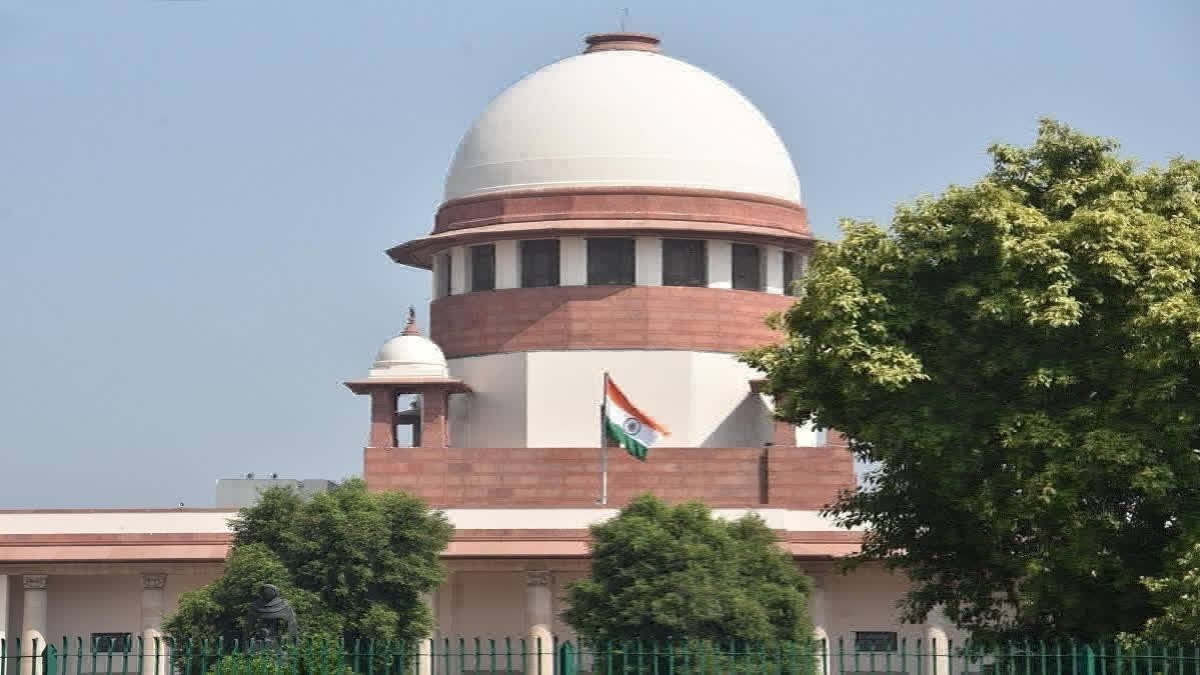New Delhi: The chief secretaries and finance secretaries of several state governments and union territories personally appeared before the Supreme Court on Tuesday to inform it whether they have complied with the Second National Judicial Pay Commission's (SNJPC) recommendations on payment of salary, pension arrears, and retirement benefits to judicial officers.
Senior advocate Rakesh Dwivedi, representing the West Bengal government, submitted before a bench led by Chief Justice of India D Y Chandrachud that the state government has complied with the apex court’s judgment and its directions.
The bench, also comprising Justices JB Pardiwala and Manoj Misra said there is no pleasure in calling the chief and finance secretaries of the states, but consistently the counsel of states have not been present during previous hearings.
On August 22, the CJI had orally remarked that he can see there is no substantive compliance and top bureaucrats will have to personally appear before the court. "Or we will issue non-bailable warrants (NBW) against them," the CJI had said.
Today, senior advocate K Parmeshwar, amicus curiae in the matter, submitted before the bench that some states like Madhya Pradesh, Tamil Nadu, Meghalaya, Himachal Pradesh, and Delhi have complied with the court's directions. The bench said it is satisfied with the compliance of its January 4 judgment and its directions to the 17 states and UTs and closed the proceedings.
The apex court made it clear that the top bureaucrats need not appear physically anymore. During the hearing, in a crowded courtroom, the chief secretaries and finance secretaries of Tamil Nadu, Madhya Pradesh, Andhra Pradesh, West Bengal, Chhattisgarh, Delhi, Assam, Nagaland, Meghalaya, Himachal Pradesh, Jammu and Kashmir, Ladakh, Jharkhand, Kerala, Bihar, Haryana and Odisha, were seen assisting their lawyers.
The apex court noted that, in the case of some states, finance department authorities will have to settle within four weeks the arrear claims pertaining to pay, pension and allowances raised by judicial officers.
Regarding individual grievances of judicial officers, the bench said the committee of high court judges, set up for this purpose, will examine it. The bench said that committees will ensure that a standard operating procedure (SOP) as directed in the judgment is put in place by September 30, 2024, and asked the committee to meet once every month to resolve pending issues like non-payment of allowances.
The apex court in January this year had said it has recommended setting up a two-judge panel in all high courts to ensure that the orders on pay, pension, and other retirement benefits for judicial officers as suggested by the SNJPC are implemented.
The apex court was hearing the plea of the All India Judges Association and 22 other similar petitions. The association is seeking the implementation of welfare and other measures for former judges and judicial officers.
On July 11, the bench summoned the chief secretaries of 23 states for non-compliance with the SNJPC recommendations on August 23.



